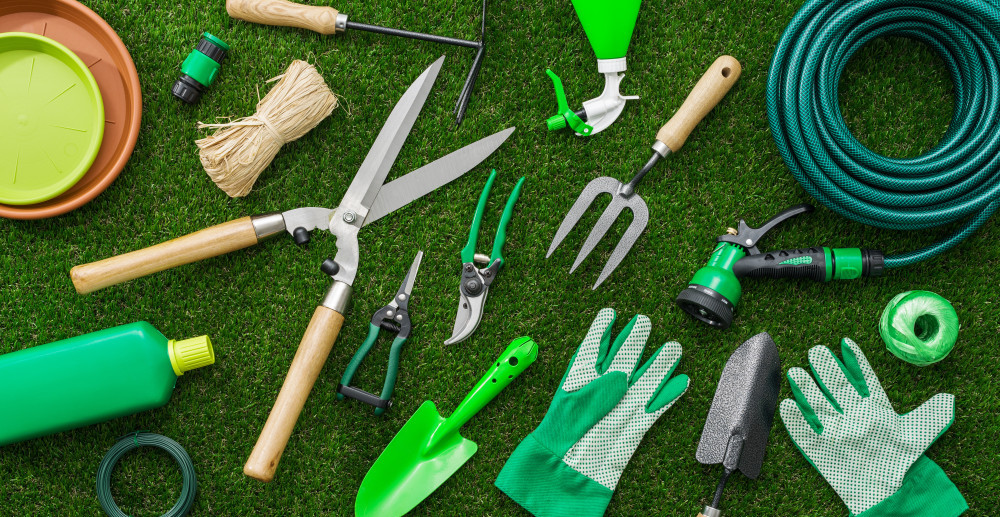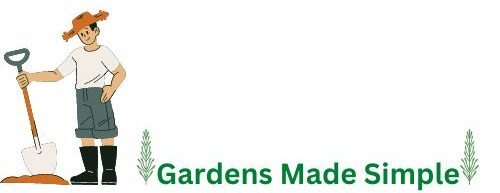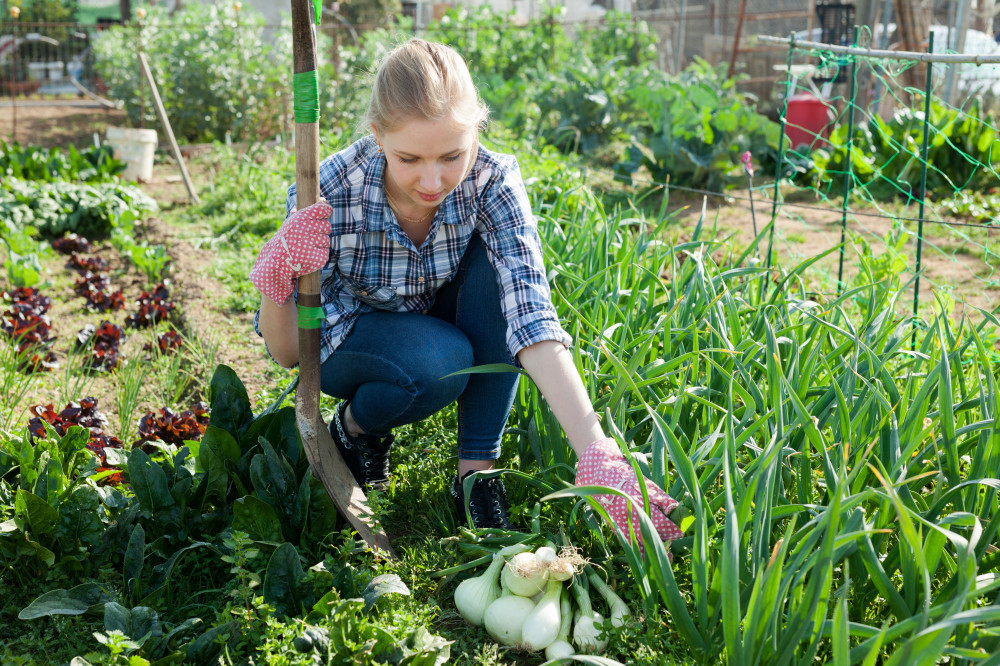Best Way to Grow a Garden
If you believe that gardening is too much work, or that you didn’t come to earth with a green thumb, then basic gardening tips for beginners have tips that just might change your mind.
One of the best things about having a garden is that it helps offset your groceries bill. With the high cost of groceries like eggs, most people believe it is cheaper to raise chickens to offset the price of eggs.
But starting a garden would be more feasible than starting an expensive chicken farm, leave that to the farmers, they have the equipment.
If you haven’t read Basic Gardening Tips for Beginners part 1 it is a good suggestion that you visit that site before continuing with part 2-(Gardening Tips That Help Beginners, Be Better Part 1 – Gardens Made Simple)
We last talked about “Select veggies that are native or adaptable to your climate.” Now it’s time to move on to another subject.
Look for Disease-Resistant Plants or Seeds
What do we mean when we say disease resistant plants or seeds? One of the first things to understand is that disease resistant does not mean immune.
Not to make things complicated or go down the rabbit hole. But there are plants with high levels of disease resistance to certain kinds of pathogens. These plants still have immune factors. It doesn’t mean that there isn’t a chance that these plants can get those diseases and be subject to productivity loss as a result.
The level of disease resistance a plant will vary depending on overall health and growing conditions. Each variety of plant is resistant to certain diseases but may not be to others.
It will help to know which diseases are common in your growing area when selecting a variety of plants to grow.
For more ways to understand these diseases you can check a seed catalog or ask a plant nursery employee to find plants equipped to combat blights or fungal diseases.
Preventative measures can keep diseases from spreading and ravaging all the plants in your garden.
Plants That are Easy to Grow and Accommodate
Some plants, like corn, grow very tall and others, like cucumbers, have vines that require fences or trellises. Research every potential plant’s growing process so you don’t choose a plant larger than what you have space for. For instance, the key to office and indoor plants is low maintenance.
Here’s the wonderful thing about office or indoor plants: they can increase the humidity around the office or home, they help purify the air, and add visual interest to your area decor.
To be realistic there’s really no limit to how many plants you should have in your office just as long as you remember to give them a drink at least once in a while. Couple of things to remember:
- Never judge a plant by its seedling, as some begin deceivingly small.
- Vegetables ideal for small spaces are:
tomatoes, lettuce, pole beans, chard, radishes, eggplants, avocados, lemons, and most herbs.
Best Time of Day to Water a Garden
Most of us think that it doesn’t matter when we water our garden, but there’s a time of the day that is the best time of the day to water a garden. Watering your garden at the right time and using the right method will keep your plants healthy.
One of those times is in the morning since that gives the plants time to dry off before nightfall. Leaving water on plants overnight can lead to mold.
On the other hand, if you live in a hot desert climate, watering your plants in the morning of a hot summer day wouldn’t be the best time. As most experts agree that plants should not be watered while in full sun.
It’s belief that wet leaves on hot sunny days cause leaves to become scorched in plants has been disproved years ago. The real problem is that it’s not water efficient.
When you water in full sun days much of the water will evaporate before it gets to enter the soil, which starves the plants of water before it reaches its roots. Getting water to the roots is what helps keep plants healthy.
Also, avoid watering the garden at night. If water sits all night without getting absorbed or evaporating, it could cause fungus to grow.
Research Your Area Climates Factors
Climate factors are very important when gardening outside. It is key to find out information about growing conditions in your area.
Some of the places to find this information would be to look online, speak to a local garden consultant, or call your cooperative extension service. Some of these tips might be a little over the top, but I find it worth mentioning:
Find out when frosts start and end on average, so you know the right time to plant.
Planting too early or too late can kill your seeds or plants, so it is vital to know when the best time to start is.
- Learn about local weather patterns that might impact your garden.
- Look-up the best time to harvest your fruits, berries, and vegetables in your area. Some of these may be straightforward, but some plants require a little more know-how about when the best time to harvest them is.
- Make a schedule of when each of your specific plants needs to be planted based on their habitat requirement and growing needs. Some plants may need to be planted very early in the season, while others may not need planting until the summer.
The Right Tools Makes the Work Easier

The Right Tools Makes the Work Easier
The Right Tools Makes the Work Easier To make gardening as easy and relaxing as possible, it is important that you have all the right tools. Starting a garden does not require a lot of equipment and tools. Depending on the size of your garden most tools are not needed.
Here are some basic tips for tools needed when planting a small to medium sized garden some of the tools needed are as follows:
- Use a shovel,
- Gloves, Gardening trowel,
- Garden fork,
- Baskets or buckets to hold weeds.
- Watering can.
You can purchase these and other tools from your local hardware store like Home Depot or Amazon.
But a lot of these tools are not necessary for a small to medium sized garden. For a large garden you may also need to purchase:
- Wheelbarrow,
- Rakes
- Hoes Loppers
- Post-hole digger.
Preparing to Plant Your Garden
There are a lot of things to do when starting a garden in the ground. Depending on the amount of space you have will determine the size of your garden.
For example, if you are thinking of planting a garden make sure that it’s in a square form like a 10 ft × 10 ft (3.0 m × 3.0 m) patch it will be easier to maintain instead of a round garden. A square garden would be easier to plot out on paper as well.
Now as you draw out your plot remember that it does not have to be overly detailed but make sure it can function as a guide while planting.
As you outline the rough shape of your garden. Make it easy on yourself to use symbols (like a letter, example X or O) for each plant so you know where you’ll plant every vegetable in the garden.
-
It’s a good idea to write down the date you plant the plant next to each drawing for future reference.
Here’s the thing, you don’t have to plant all your plants at one time. That’s why you need to create a planting schedule for each of your vegetables. Depending on the type of vegetables you are growing they have different times to be planted.
Like I mentioned earlier in the article, planting too early or too late can kill your seeds or plants, so it is vital to know when the best time to start planting your garden is.
Also, if this is your first-time gardening, it is something that you don’t have to rush. Try to grow two or three varieties at a time, warm weather plants first and cool weather plants later.
Planning when you will grow each plant can help you achieve a higher yield.
Below are a few tips to help you make a good decision when planting your garden:
Check the best planting season for a specific vegetable, try the Almanac’s planting dates guide. Also, for another source of information on seeds and soil check out, “The Best Things to Grow a Garden.”
- Find out when frosts start and end on average, so you know the right time to plant.
- Learn about local weather patterns that might impact your garden.
- Look-up the best time to harvest your fruits, berries, and vegetables in your area. Some of these may be straightforward, but some plants require a little more know-how about when the best time to harvest them is.
- Make a schedule of when each of your specific plants needs to be planted based on their habitat requirement and growing needs.
- Look into installing an automatic sprinkler system if you don’t have time or the ability to hand-water your garden.


As spring is beginning and the weather hotter, gardening becomes more delightful. The good point that you mentioned was the time of watering plants, which I didn’t have much information about it and I thought there is no difference in when to water them. You have added to my information. Thanks, a lot.
Liam, that was a great point to pick up on. Water is very important for plants, especially when to water them. Because, if done at the wrong time, could kill your plants
As spring is beginning and the weather hotter, gardening becomes more delightful. The good point that you mentioned was the time of watering plants, which I didn’t have much information about it and I thought there is no difference in when to water them. You have added to my information. Thanks, a lot.
As spring is beginning and the weather hotter, gardening becomes more delightful. The good point that you mentioned was the time of watering plants, which I didn’t have much information about it and I thought there is no difference in when to water them. You have added to my information. Thanks, a lot.
Thank you for your posts about the best way to grow a garden. I had to laugh out loud when I read your point about not being born with a green thumb! I say that all the time because even though I grew up with family members who were amazing gardeners, I didn’t seem to catch the skill!
I am curious about your instruction on watering. I used to live in the desert and totally get what you wrote about not watering in the morning. I did that a lot, particularly because of water restrictions and the city saying we had to water either early in the morning or in the early evening. I ended up with burnt grass more times than I care to admit. My question is about what sort of plant would you recommend for relatively moist or humid climates? I now live in an area that has experienced a lot more rain and the soil seems like it never dries up. Thank you for considering my question!
Hey Andree, thinks for the comment, like you I grew-up in a family of gardeners and farmers too, I use to hear my dad say the green thumb thing to my older brothers all the time, that’s where I got it from.
To answer your question here’s what I tell newbie about gardening, pick plants that are easy to grow like lettuce, carrots, cucumbers, and tomatoes plus they like water and sunlight. Some plants like spinach and radishes also grow quickly.
I live in desert climate, and it hard to grow any in the ground, so I use raised garden bed box, so I can grow want to. They are easy to make, or you can buy them at Home Depot. Hey, Andree Thanks, again.
My wife will love your article. I am not so much into gardening but I can say honestly that I like to see a nicely tendered garden. And since my wife loves to spend some time outdoors with such activities I am sure she will find your tips more than useful. Thanks for sharing!
Stratos, K, thanks for your comment. Like your wife, I find being in the garden relaxing plus I’m outdoors. The funny thing is I still get a little excited when I see plants growing, especially veggies, then I reward myself with a good salad. I hope these tips helps they have helped me create a beautiful garden. Stratos thanks again!
Gardening can be a relaxing and therapeutic activity for many people. It allows individuals to connect with nature and to take a break from the stress and demands of daily life.
It also provides opportunities for exercise and can be a creative outlet for those who enjoy working with plants. The process of nurturing and caring for plants can be rewarding and satisfying.
Hey, JR, true! gardening is relaxing. I also find it fun at times. Thanks for the appreciation of gardening.
My mom will cherish your article. I’m not such a huge amount into cultivating however I can say really that I like to see a well offered garden. Furthermore, since my mom loves to invest some energy outside with such exercises I’m certain she will track down your tips more than valuable. Gratitude for sharing!
Hi Katherine P, thanks for the comment. I glad your mom like gardening. I also fine it rewarding and relaxing. One of the things I try to do when writing an article is use what I learned, use my experiences and what I research to make sure I’m on point. Thanks again.